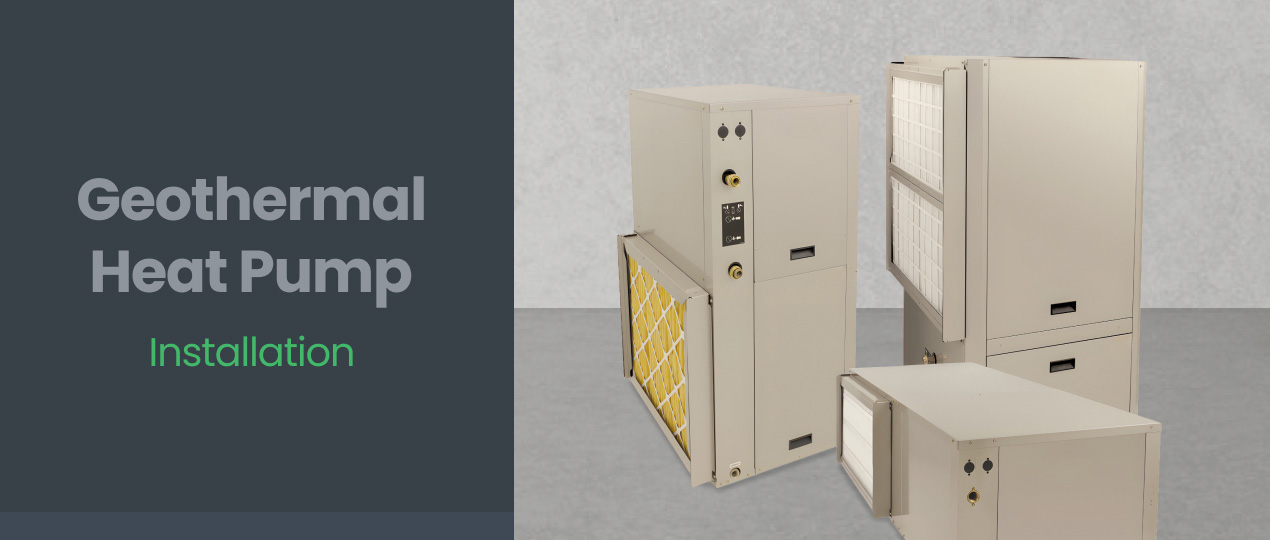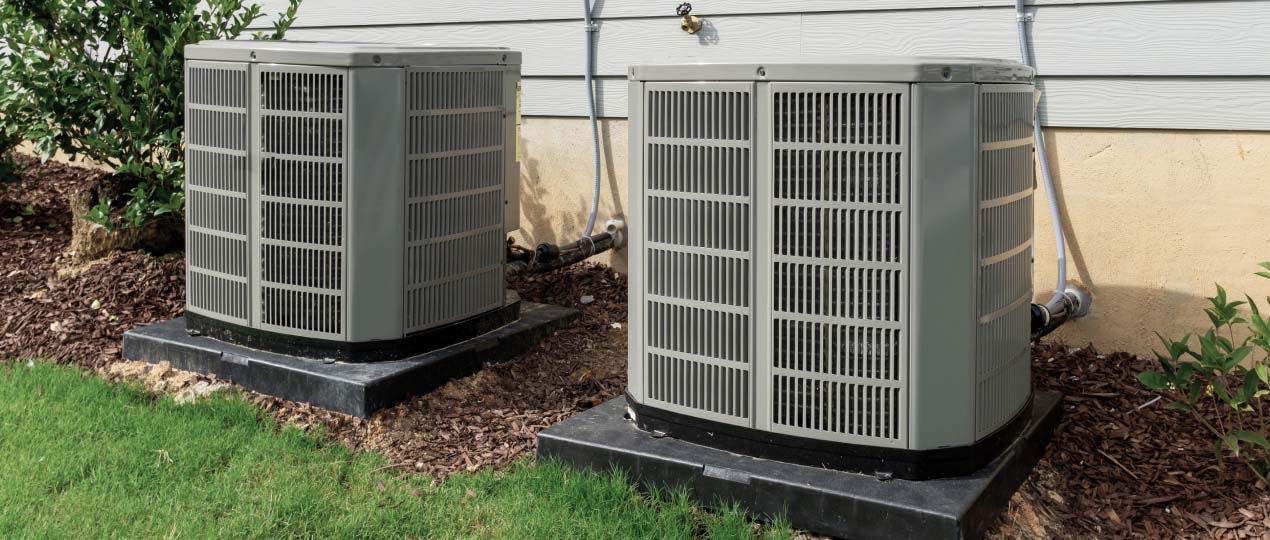
Before we discuss the specifics, it’s indispensable to comprehend what is geothermal HVAC and how it revolutionizes heating and cooling. By tapping into the natural thermal energy beneath the earth’s surface, geothermal HVAC systems deliver both reliability and sustainability. The following article will shed light on the core principles, the benefits, and down-to-earth considerations for people or businesses interested in this cutting-edge technology.
How does a geothermal heating system work?
An HVAC system captures constant temperatures to warrant powerful indoor climate control. To grasp the fundamentals, we should examine its loop configurations, the nature of the heat pump, and the role of the circulating fluid. In essence, the structure transfers heat from the ground to your home in winter, and expels heat from your home to the ground in summer, making it a highly decisive exchange. Apprehending these stages is pivotal for anyone curious about installing a unit. Below, we break down the core components and processes that underpin an HVAC arrangement.
This overview highlights the simplicity and ingenuity of an approach that can reshape both energy usage and overall comfort:
- Underground loop installation Special piping, horizontal or vertical loops, goes underground. A water-based fluid circulates through this loop, absorbing the earth’s thermal energy. This fluid remains protected, guaranteeing the longstanding stability of the structure and its overall efficiency.
- Heat pump function Inside the home, a heat pump extracts or rejects heat via a refrigerant loop. This device transfers warmth in winter from fluid to air, and the reverse in summer, making certain stable interior temperatures year-round.
- Distribution mechanisms A standard ductwork mechanism or radiant floor technology distributes conditioned air or heat throughout the building. This distribution guarantees uniform temperatures, eliminating many hot or cold spots found in traditional HVAC systems.
These stages illustrate how HVAC systems harness the earth’s natural energy reserves. By leveraging advanced loop configurations and a valuable pump, homeowners enjoy a consistent indoor climate. Moreover, the system operates with reduced energy consumption, resulting in a greener footprint.
Geothermal HVAC pros and cons – primary points
When exploring benefits and drawbacks, it’s critical to figure out the net gain. While the original investment may appear steep, the deep-rooted savings and environmental advantages often outweigh any drawbacks. Well, if you need your HVAC structure to be fixed, replaced, or estimated, contact Superior HVAC Service for top-notch assistance and outcomes! Below, we examine the core benefits of a approach that underscore its growing popularity.
Unmatched energy efficiency
What is a geothermal heating system in the context of energy productivity? Essentially, it’s a self-contained cycle that capitalizes on stable temperatures. By dramatically cutting back on the electricity needed to generate heat, systems curtail consumption compared to electric or gas furnaces. This unparalleled efficiency translates into lower utility bills and a scaled-down carbon footprint.
Significant cost savings over time
Though installation involves upfront expenses, systems typically recoup these costs via monthly savings. In many cases, homeowners report significant reductions in heating and cooling bills, sometimes by up to 50% or more. Over the lifespan of the system, these savings can ultimately exceed the basic outlay, making it an appealing durable investment.
Environmentally friendly heating and cooling
Beyond financial benefits, solutions offer an eco-conscious way to regulate indoor climates. They emit far fewer greenhouse gases compared to conventional HVAC setups, significantly curtailing carbon footprints. As energy capability standards become stricter, adopting sustainable alternatives like geothermal becomes more attractive, and, in some regions, may even be incentivized through government programs.
Consistent comfort in any season
Geothermal systems maintain a steady output, so residents experience stable temperatures with minimal fluctuation. This consistency stands in stark contrast to some traditional units that blast hot or cold air intermittently, leading to uneven conditions. With geothermal, you can set your ideal comfort level and rely on the system to deliver it consistently.
Long lifespan and low maintenance
A geothermal HVAC system’s underground loops often have warranties of up to 50 years. The indoor components, such as the heat pump, may last two or three decades if maintained correctly. This longevity stems from diminished exposure to harsh outdoor conditions, a factor that helps stave off wear and tear commonly seen with traditional units.
Quiet and reliable operation
Many homeowners appreciate the near-silent operation of systems. There’s no noisy outdoor compressor to disturb the peace, and fewer moving parts overall mean the system operates with fewer mechanical hiccups. This reliability stems from straightforward yet robust engineering designed for minimal intervention.
Increased property value
Because of the significant energy hoards, eco-friendly nature, and long system life, a geothermal setup can raise a property’s value. Prospective buyers often see the installation as a testament to quality and foresight. Consequently, this investment can pay dividends if you decide to sell, appealing to environmentally conscious or cost-savvy buyers.
Eligibility for tax credits and incentives
In many regions, homeowners who install solutions qualify for tax breaks, grants, or rebates. These incentives can offset a noticeable portion of the upfront cost. By capitalizing on available programs, you can make the switch to geothermal more financially manageable while simultaneously enjoying ongoing means.
Is geothermal HVAC worth it and right for you?

Assessing requires an analysis of property size, soil composition, climate, and budget. In many instances, the efficiency gains and environmental rewards make the system an ideal fit. However, smaller homes with limited yard space, or properties requiring extensive excavation, may face challenges. Below is a straightforward list to help you determine if a system meets your needs.
Deciding on an HVAC system involves evaluating your site’s geology, your lifelong energy goals, and financial considerations. This list highlights the main factors that often influence the success of a project.
From upfront costs to potential benefits, these points guide you in making an informed decision:
- Property evaluation Geothermal loops need adequate land or vertical drilling space. A site assessment can confirm soil type, bedrock depth, and groundwater availability. These factors influence installation complexity and help estimate overall project costs.
- Local climate Cold or hot extremes can highlight strengths by delivering stable performance year-round. A moderate climate may also benefit, though cost savings vary. Research your region’s average temperatures to gauge potential returns.
- Financial outlook While installation costs can be higher than conventional systems, many homeowners justify the expenditure through eventual savings. Tax incentives, rebates, or utility partnerships further weaken financial barriers and accelerate payback periods.
- Future plans If you’re planning to stay in your home for the long term, geothermal often makes sense. Selling soon? It may still boost property value, but warrant that local buyers appreciate the benefits of sustainable solutions.
Taking these factors into account helps determine whether geothermal is functional for your residence. While every property is unique, the technology’s proven benefits, coupled with potential incentives, often make it a wise choice. Consulting with experts can provide additional clarity on specific local conditions.
When to call an expert?
Below are key moments and scenarios when you might consider calling professionals, such as Superior HVAC Service, to discuss solutions tailored to your home or commercial space:
- During construction or major renovation Installing loops and heat pumps is simpler when walls and landscaping are already disrupted. This stage often reduces labor costs and allows for easier system integration, making sure optimal performance from the start.
- Facing frequent HVAC repairs If your current heating or cooling system breaks down often, it might be time for a permanent solution. A geothermal HVAC can dramatically reduce maintenance demands and avoid repetitive repair expenses.
- Seeking better efficiency Me unmanageable, a solution offers respite. By stabilizing energy consumption, this system often pays for itself, creating a more predictable monthly budget with reduced environmental impact.
Recognizing these pivotal moments ensures you capitalize on every advantage a setup can provide. In many cases, acting sooner rather than later helps you start saving on energy bills and experience the comfort benefits that define geothermal as a premier heating and cooling choice.
Conclusion
Geothermal technology has emerged as a groundbreaking solution for modern heating and cooling needs. By tapping into the steady temperatures beneath the earth’s surface, geothermal HVAC pros and cons shift dramatically in favor of this innovative system, highlighting lowered costs, sustainability, and unparalleled indoor comfort.
Whether you’re evaluating the process of a new construction or retrofitting an existing home, the potential advantages are substantial. The evidence strongly suggests that the return on investment, environmental benefits, and year-round reliability make the answer a resounding “yes” for many households. Deciding when to opt for installation can be crucial. Timely planning maximizes efficiency and return on investment.
If you’re ready to explore an HVAC system tailored to your property, let Superior HVAC Service, an HVAC company in Windsor, Ontario elevate your comfort, efficiency, and peace of mind, call us today!
Our experienced technicians are adept at resolving any issue in the shortest time.
Order the best specialist in Canada Now (866) 545-6460
REFERENCES
1. Naicker, S. S., & Rees, S. J. (2018). Performance analysis of a large geothermal heating and cooling system. Renewable Energy, 122, 429-442. https://www.sciencedirect.com/science/article/abs/pii/S0960148118301095
2. Soltani, M., Kashkooli, F. M., Dehghani-Sanij, A. R., Kazemi, A. R., Bordbar, N., Farshchi, M. J., … & Dusseault, M. B. (2019). A comprehensive study of geothermal heating and cooling systems. Sustainable Cities and Society, 44, 793-818. https://www.sciencedirect.com/science/article/abs/pii/S2210670718306838



